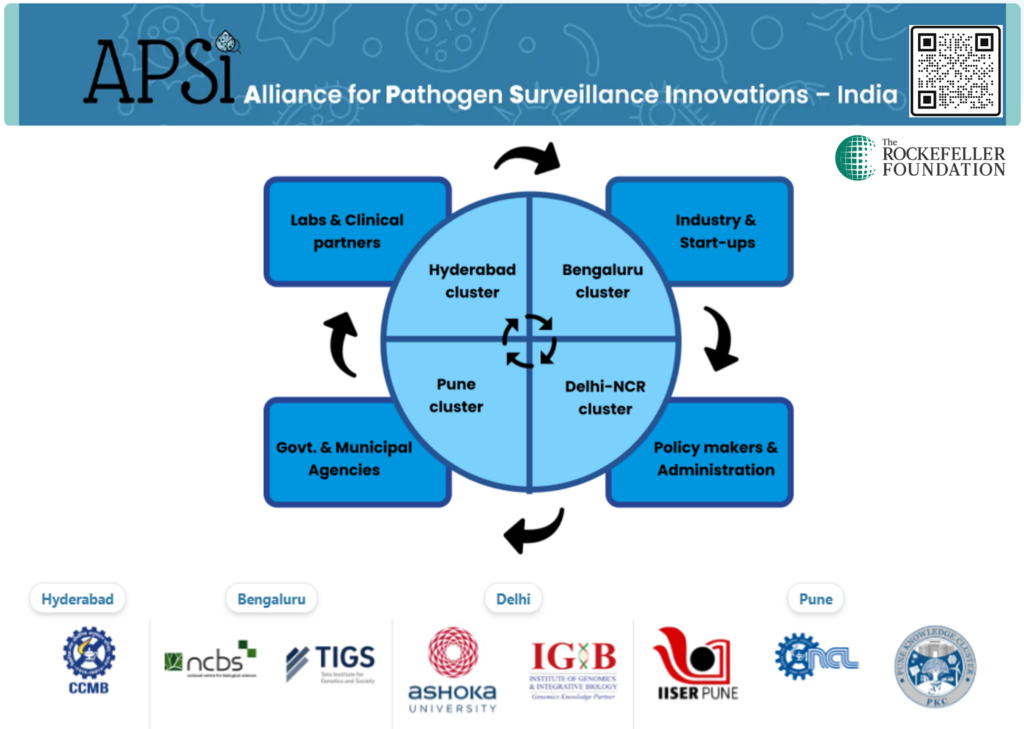Public health surveillance systems must generate disease information that drives action, and these data must be of sufficient quality, quantity and resolution to reduce disease burden.
TIGS is a key partner in a unique pan-India initiative for environmental surveillance and developing innovative strategies for pathogen monitoring. A consortium of four city clusters – Bengaluru, Hyderabad, Pune and New Delhi – has been established with generous support and a three-year seed fund from the Rockefeller Foundation. Conceptualized during the pandemic, the consortium has already set up an advanced SARS-CoV-2 surveillance platform, incorporating viral genome sequencing and wastewater based detection and surveillance.
We are currently developing new technologies and disease-agnostic surveillance platforms to monitor and predict the spread of infectious diseases such as respiratory illnesses (COVID-19, influenza, tuberculosis), vector-borne diseases (dengue, chikungunya, scrub typhus etc), and anti-microbial resistance (AMR) in India.
The disease surveillance data will be monitored in real time via shared data pipelines and interactive data dashboards serving researchers and policymakers as well as the general public.

A major outcome of our work in this consortium is to develop sustainable environmental surveillance models that can be handed over to relevant agencies for large scale implementation. By initiating an early warning system at a regional level, this program will be a crucial step towards strengthening the public health surveillance network in India and to mitigate future pandemic risks.
For more details, visit our website: Alliance for Pathogen Surveillance Innovations
Chief Principal Investigator: Rakesh Mishra
